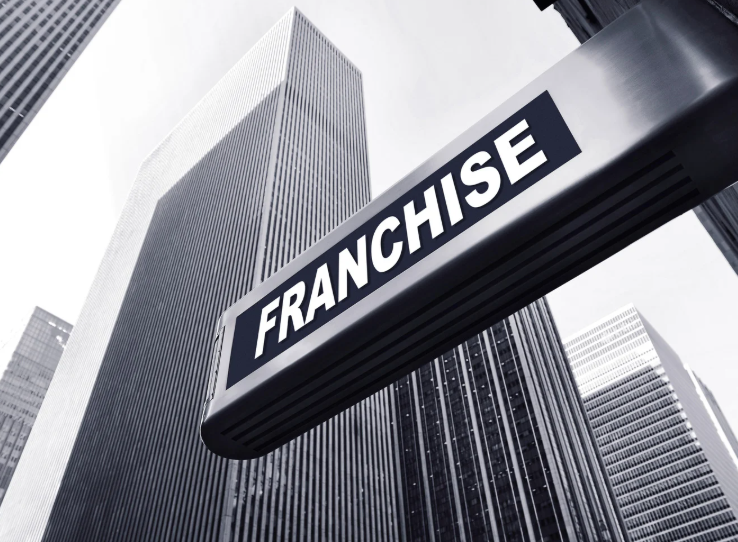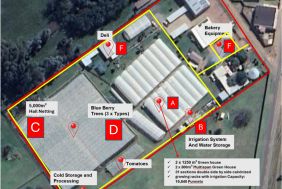Can I Franchise my Business? – Ten Things to Consider
Many businesses get to a stage where they consider expansion, and franchising is one way of expanding a business footprint. There are many benefits to be had from franchising a business, including expansion with third party capital and the dedication of an owner manager that promotes the business for their own profit. Not all businesses have franchise potential. Any business owner considering franchising should ask themselves the following questions. Ideally, all these questions should have a positive answer.
Anita du Toit
09 September 2025
Summary
Many businesses get to a stage where they consider expansion, and franchising is one way of expanding a business footprint. There are many benefits to be had from franchising a business, including expansion with third-party capital and the dedication of an owner-manager that promotes the business for their own profit. Not all businesses have franchise potential. Any business owner considering franchising should ask themselves the following questions. Ideally, all these questions should have a positive answer.
1. Is the business operational?
There are plenty of entrepreneurs with ideas but putting that idea into action is a prerequisite for franchising. Potential franchisees (and banks that offer franchise finance) want to see a track record of operations and profitability.
2. Is the business profitable?
The business must reach the profitability stage prior to franchising in at least one location or branch. Franchisees are looking for a recipe for success, and a positive bottom line is the ultimate marker of a successful business.
3. Can a franchisee afford franchise fees with this business model?
In addition to profitability, the profit margin must have enough room to apply a percentage-based franchise fee and marketing contributions. Franchises thrive when they pool their money to do collective marketing and when the franchisor collects franchise fees to maintain a supportive head office.
4. Can I train other people to do what I do?
Franchising a business implies training other people to operate the business in the same fashion. If the skills required are too difficult to train or if the business is highly reliant on the owner for its success, it will be difficult for the franchise. A good way of testing this is opening another company owned branch to see how the business performs without the involvement of the founder.
5. Do I have enough money to pay for professional assistance?
Franchising has many aspects to consider and it is easy to make mistakes. A potential franchisor should have funds available to invest in the professional advice of a franchise consultant and specialised attorney, to help navigate the journey to franchise readiness.
6. Does the business have an element of uniqueness?
It is easier to franchise a business with some uniqueness, whether it has a “secret recipe” or methods or system that mean a franchisee does not have to reinvent the wheel. It generally feeds market acceptance too, as consumers respond well to businesses that offer something different than the norm.
7. Does the business have an established brand?
Buying into an established brand is a major motivator for franchisees and an essential part of the franchise value proposition, the offering sold to franchisees. If the brand is not known in its area or not well-designed, the business needs to give this attention prior to franchising.
8. Can the franchisee achieve a return on investment within a reasonable timeframe?
A franchisee will make a substantial investment and will most likely apply for finance, whether with a bank or from friends and family. Successful franchises offer a return on investment (after a salary for the franchisee) of between 3-4 years.
9. Will the business achieve financial growth and a return on investment by franchising?
The motivation for franchising a business is usually to grow its footprint and its profits. As a potential franchisor, the business owner should evaluate the potential financial growth and profitability that can be achieved with franchising and whether it is acceptable when compared to expansion through company-owned units.
10. Can the industry sustain a franchise network?
One thing that the Covid19 related lockdowns taught us is that not all industries are bulletproof. If your business is in an industry that will have difficulty in a post-Covid19 economy, franchising is not the way to go. Instead, reinvent and adapt with a new formula before you consider franchising.
Getting professional business advice is the best way forward if you are considering franchising your business. Franchise Fundi has seasoned consultants and service providers available to help new franchisees with every stage of development. For more information, see https://franchisefundi.co.za/
More Sellers Knowledge Bank
Get the latest information, valuable tips and share in the professional knowledge of business experts on selling a business
Unlocking Opportunities: Selling Kindergarten, Pre-School and Early Childhood Development Centre Franchises Online with Business for Sale
We're excited to announce our latest endeavour aimed at fostering growth and expansion in the early education sector, particularly in the realm of kindergartens, pre-primary schools, and early development centres. At Business for Sale, we recognise the immense value these establishments bring to communities and families. That's why we have the perfect solution to help you grow.
Empowering Franchisors: A Refined Approach for Exponential Sales Growth
Empowering Franchisors: A Refined Approach for Exponential Sales Growth
6 Steps To Selling A Small Business In South Africa.
6 Steps To Selling A Small Business In South Africa.
10 Factors That Influence The Value Of Your Business
10 Factors That Influence The Value Of Your Business
How Long Will It Take To Sell My Business?
How Long Will It Take To Sell My Business?
How To Increase The Value Of Your Business When Selling
How To Increase The Value Of Your Business When Selling
The Importance of Business Valuation and How Business For Sale Can Assist.
The Importance of Business Valuation and How Business For Sale Can Assist.
Strategic Planning: Maximizing Profitability in Your Business
Strategic Planning: Maximizing Profitability in Your Business
How To Make Your Business Attractive To Buyers
How To Make Your Business Attractive To Buyers
Accurate Business Valuations for Accountants and Financial Planners
As a financial planner or accountant, accuracy is of the utmost importance in order to perform your job effectively. When it comes to clients with businesses, a business valuation is of great importance and can provide you with the information you need to accurately and effectively plan for your client's financial future. In this article, we will discuss the benefits that business valuations hold for accountants and financial planners, as well as explain how Business for Sale can help you.
Factors That Go Into Selling an Accommodation Business
There are a multitude of factors to take into consideration when selling any business, no matter the size. Selling an accommodation business is no different and will require your to prepare and plan effectively in order to get the best price possible. In this article, we will discuss when you should sell your accommodation business and how an accommodation business is valued.
Selling a Business in 2023 Has Never Been Easier
Selling a Business in 2023 Has Never Been Easier
Access to the number one business broking tool to get your business sold.
We've got you covered!
We offer an innovative and intuitive
solution for selling your business, franchise and premises
Promote
your business for sale
Reach
the right audience
Gain
more exposure

Latest businesses for sale
View our latest business listings and be the first to enquire






















